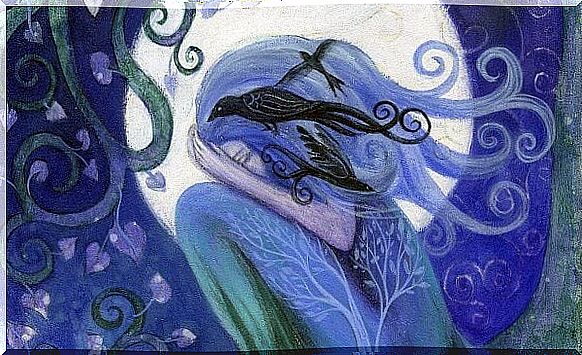Dignity Is The Language Of Self-esteem, Not Pride

Dignity is not a matter of pride. It is a precious jewel we can not put in the hands of others or lose easily. Dignity is self-esteem, respect for oneself, and health.
It is also the power that lifts us up when our wings have been destroyed, hoping to get somewhere far away where nothing hurts, where we can look at the world again with our heads held high.
We could almost say that few words are as important today as the first in the title of this article. It was Ernesto Sábato who said not so long ago that human dignity was apparently not expected in this globalized world.
All of us see it every day. Our society is increasingly becoming a system where we gradually lose more rights, opportunities and even freedoms.
Here, however, is an interesting thing to keep in mind. Many philosophers, sociologists, psychologists and writers try to give us strategies for creating what they call the “age of dignity”.
They believe it is time to find our identity, to have a voice and work with our strengths to find greater satisfaction in our environment, and thus make real change in this diverse society.
People like Robert W. Fuller, who is a physicist, diplomat and teacher, have created a concept that we will probably start to hear more often. It is “rangism”, or “rankism” in English.
This concept includes behavior that day by day eats away at our dignity: being intimidated by others (in relationships, at work) and harassed, gender discriminated against and being a falling victim of a relentless social hierarchy.
All of us, at some point in our lives, have felt what it is like to lose our dignity. Whether it was a violent relationship or a degrading job, they come with a high personal cost.
Demanding change, standing up for yourself and fighting for your rights is never pride. It’s bravery.

Dignity in the work of Kazuo Ishiguro
We have received news that the British author of Japanese origin, Kazuo Ishiguro, received the Nobel Prize for Literature in 2017. The audience knows him mainly for one of his novels, ” The Remains of the Day “, which was made into an exceptional film.
Funny enough, not everyone could say what the central theme was in his meticulous and sometimes astonishing – but always wonderful – book.
We could consider ” The Remains of the Day ” as a love story. A story of cowardly love and walls, where lovers can never touch and they can see nothing but the person they love.
Perhaps we are saying that it is a story about a house and its inhabitants, lords and servants. And how a nobleman, Lord Darlington, sought friendship with the Nazis when his passive butler watched his master betray his country.
We can say this and much more, because that is without a doubt the magic of books. But more than anything else, “The Remains of the Day” talks about dignity.
“The Remains of the Day” and dignity
It’s about the dignity of the narrator, who in turn is the main character in the story: Mr. Stevens, butler of Darlington Hall.

The whole novel is a defense mechanism, an attempt at constant reasoning. We meet a person who feels worthy and honored for the work he does.
But such work is nothing but cruel and absolute seriousness. There is no room for reflection, doubt, recognition of one’s own feelings, much less for love.
But there comes a time when the facade of the “big butler” falls apart. During a dinner, one of Lord Darlington’s guests asks Mr. Stevens’ questions to demonstrate how ignorant the lower classes are.
It was a direct attack on Mr. Stevens’ identity. The butler in him stands aside to make way for the wounded man who never had dignity, who lived under a facade. The man who gave up true love to serve others.
How can we restore and strengthen our dignity?
It is very interesting how an observer and even a reader who flips through books like “The Remains of the Day” immediately knows how a particular person is manipulated or how he uses elaborate self-deception to justify things that in our eyes are irrational. .
But we can also do things in our daily lives that are very similar to what the butler in Darlington Hall does.
We can give everything we have for that love, the harmful, toxic, exhausting relationship. In fact, sometimes we love with blind eyes and an open heart, without seeing how our self-esteem has divided opinions.
You can stay in the poorly paid job where you are not valued… You let your life and your dignity go… but what can you do … life is what it is, and is not the evil you know better than the evil you do not know?

We have to wake up. As we said, this is an age of dignity, where we must all remember our worth, our strength, our right to have a better life, to deserve what we want and need.
Saying it out loud, setting boundaries, closing doors to open others and defining ourselves before others do… there is no pride.
Do not lose your individuality. Let us stop justifying the unjustified and be a cog in the machine of life that eats at our wonderful personalities.
Finally, let’s stop being a victim of misfortune and instead create happiness with our own hands and our courage.









